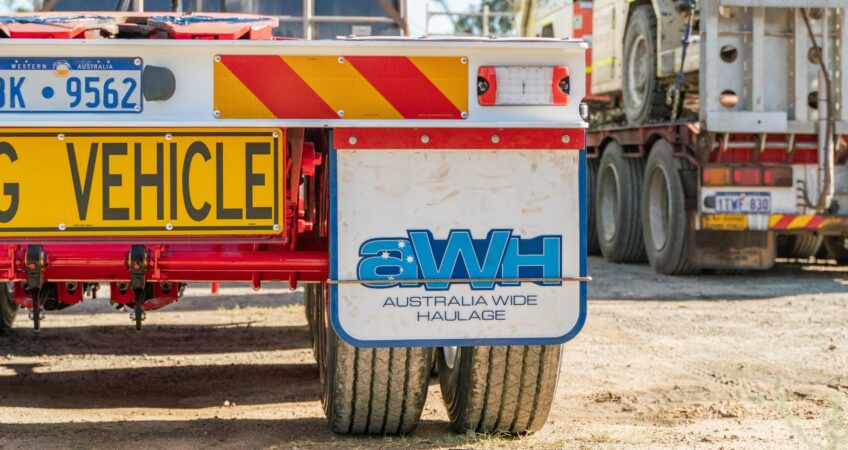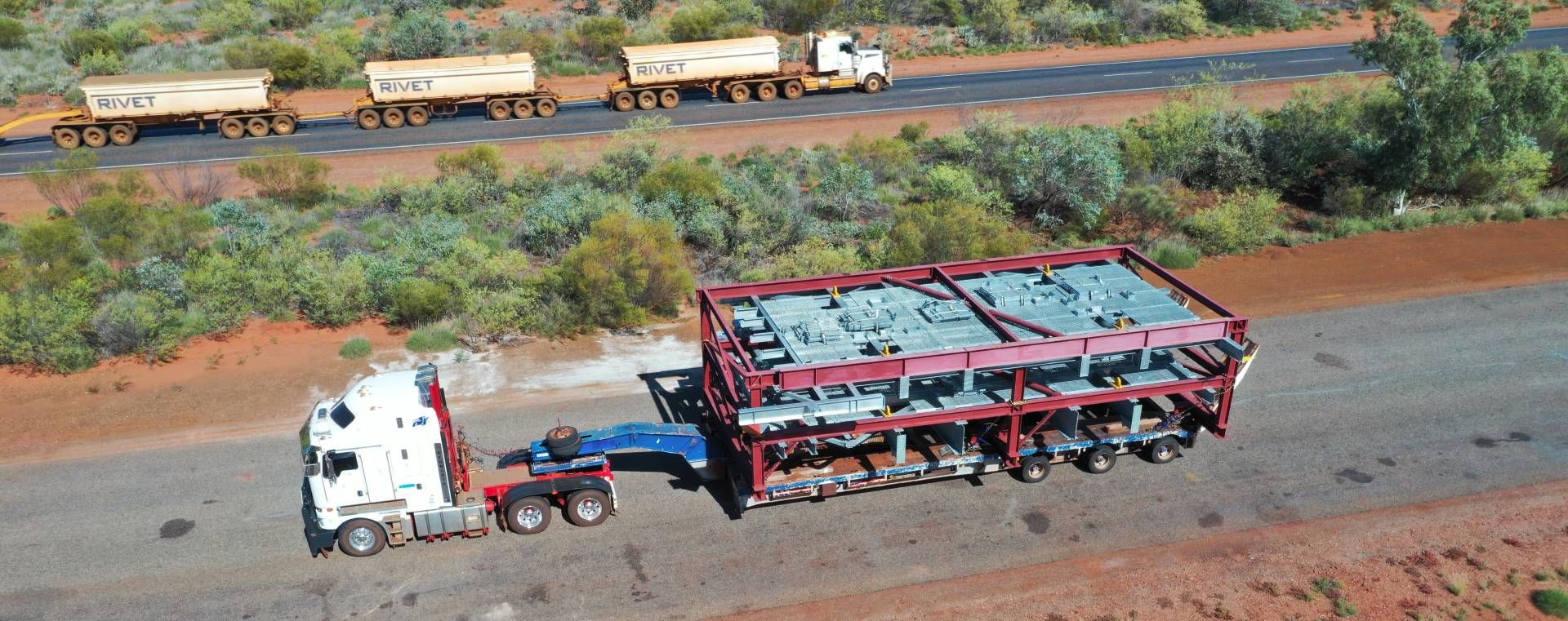
Businesses across Australia and the globe rely on freight shipping. As Perth’s freight transport specialists, we know the ins and outs of the road freight industry.
Here, I’ll share everything your company needs to know about freight so you can make an informed decision based on your industry, shipping needs, and budget.
My freight shipping guide for WA businesses will cover:
- What is freight?
- What types of businesses need freight services?
- What are the types of freight?
- What is freight forwarding?
- What is freight shipping?
- When should I use freight forwarding vs freight shipping?
- Types of freight shipping
- Pros and cons of freight shipping methods
- Benefits of road freight
- How to know if you need freight shipping
What Is Freight?
Freight refers to products or goods that are transported in bulk, usually by a plane, truck, ship, or train.
You may hear “cargo” used interchangeably with freight, especially when goods are being transported by air or sea.
Generally, items must meet these requirements to be considered freight:
- More than 68 kgs (150 pounds)
- Over 4.06 metres (160 inches) in length and girth
- 2.74 metres (108 inches) long
Learn More: What is the Difference Between Freight and Courier?
Types of Businesses That Need Freight Services
| Industry | Transport Needs |
|---|---|
| Medical industries | Transport medical supplies and equipment to healthcare facilities. |
| Mining equipment | Deliver heavy machinery and tools to mining sites. |
| Construction equipment industries | Move construction machinery and materials to job sites. |
| E-commerce companies | Ship products to customers. |
| Manufacturing and distribution industries | Distribute goods to retailers and consumers. |
| Restaurants | Receive food supplies and ingredients. |
| Automotive industries | Supply car parts and vehicles to dealers. |
| Transportation industries | Move goods across various locations. |
| Pharmaceutical companies | Deliver medications and medical supplies to pharmacies and hospitals. |
| Technology companies | Transport electronics and tech equipment. |
| Retail Stores | Receive inventory for sale. |
| Food and beverage industries | Ship perishable goods to markets and stores. |
| Agricultural industries | Distribute farm produce and equipment. |
| Oil and gas companies | Move fuel and equipment to and from extraction sites. |
| Chemical industries | Transport chemicals and related products. |
| Building material suppliers | Deliver construction materials to sites. |
Learn More: Heavy Haulage: Common Applications and When You Might Need It
Types of Freight
Here are some of the general classifications of freight:
- Oversized Freight — Oversized equipment and machinery that requires extensive planning and specialised equipment for safe transport (i.e. construction equipment, mining equipment, cranes, bulldozers, etc.)
- Bulk Freight — Large quantities of the same goods (i.e. coal or grain)
- Dangerous or Hazardous Freight — Materials that may be harmful if improperly handled (i.e. flammable materials, explosives, etc.)
- Liquid Freight — Liquid freight such as oil or fuel
- Automotive Freight — Vehicles and trucks
- Livestock Freight — Transporting animals
- Refrigerated Freight — Transporting goods that require refrigerators, such as foods, beverages, horticultural products, medications, etc.
- Ugly Freight — Shipments that are complicated to transport due to their shape, value, or size
Freight Shipping vs Forwarding
What Is Freight Forwarding?
A freight forwarder is an organisation hired for the shipment of goods. However, they do not actually ship the freight. Rather, they serve as the middle-man between the carrier and the freight shipper.
What Is a Freight Shipper?
A freight shipper is the company or individual that organises and completes the transportation of the goods. In some cases, freight shipping is handled in-house.
At Australia Wide Haulage, we offer full-service freight shipping, meaning we handle all the planning, logistics, tracking, and the actual transportation process.
Relying on a full-service transport company can make the freight shipping experience as seamless and safe as possible.
Types of Freight Transport
Freight is delivered in a variety of ways, each with its own pros and cons and ideal applications.
Freight transport can be completed in-house (1PL), by a full-service transport company such as Australia Wide Haulage, or by a freight forwarder.
Here are the main methods of freight transport.
Truck (Road) Freight
Road freight relies on the transportation of goods by truck. Hauling goods on roads and highways offers a high level of flexibility and a cost-effective method of transport.
Ground Freight
Ground freight is a general term for transporting goods on land, such as rail and road freight.
Rail Freight
Rail freight involves the transportation of goods using train networks. Rail freight is ideal for heavy goods that need to be hauled over long distances. However, rail freight requires adequate railway infrastructure.
Sea Freight
Sea freight, also known as maritime freight, involves transporting goods on cargo ships. Maritime freight is ideal for transporting bulky goods internationally.
Sea freight is one of the oldest methods of freight transport but it is slower than other methods.
Air Freight
Air freight refers to the transportation of goods by an air carrier. This form of freight transport boasts rapid transport times and the ability to deliver freight internationally.
Air freight is generally the most expensive form of freight transport but also the fastest. It’s especially suitable for high-value items or deliveries that require rapid or urgent transport.
Intermodal Transport
Intermodal transport refers to a combination of transport methods.
4 Benefits of Road Freight
Here are four benefits of road freight versus other types of freight transport.
1. Cost-Efficiency
With unmatched infrastructure and short to medium delivery distances, road freight transportation is more cost-effective than rail, sea, or air freight.
Businesses that require freight transport on a budget often rely on the cost-efficiency of road freight.
2. Speed
Next to air freight, road freight is generally considered the fastest form of freight transportation. For deliveries over short distances, road freight is difficult to beat.
3. Reliability
Road freight is highly precise and reliable, offering the ability to track shipments with real-time updates. Road freight is also less susceptible to delays compared to other forms of freight shipping, such as sea freight.
4. Adaptability
Sea, rail, and air freight are important methods of transport. However, without road transport is arguably the most crucial type.
Air, sea, and rail transport all rely on road freight to get packages and shipments to their final destinations.
How Do I Know If I Need Freight Services?
If you have an oversized load, such as bulk goods or massive equipment, that cannot be transported by a regular vehicle, you likely need freight services.
If you have heavy equipment, construction equipment, mining equipment, or other oversized goods to haul, contact our specialists at Australia Wide Haulage.
As Perth’s #1 leading haulage and freight company, we have the extensive experience, accreditation, specialised equipment, and permits needed to safely transport oversized loads to any location across Australia.
Our team is here for all your oversized road freight needs, offering the highest level of reliability and safety in the freight industry. Contact us for a transport quote or more information.

